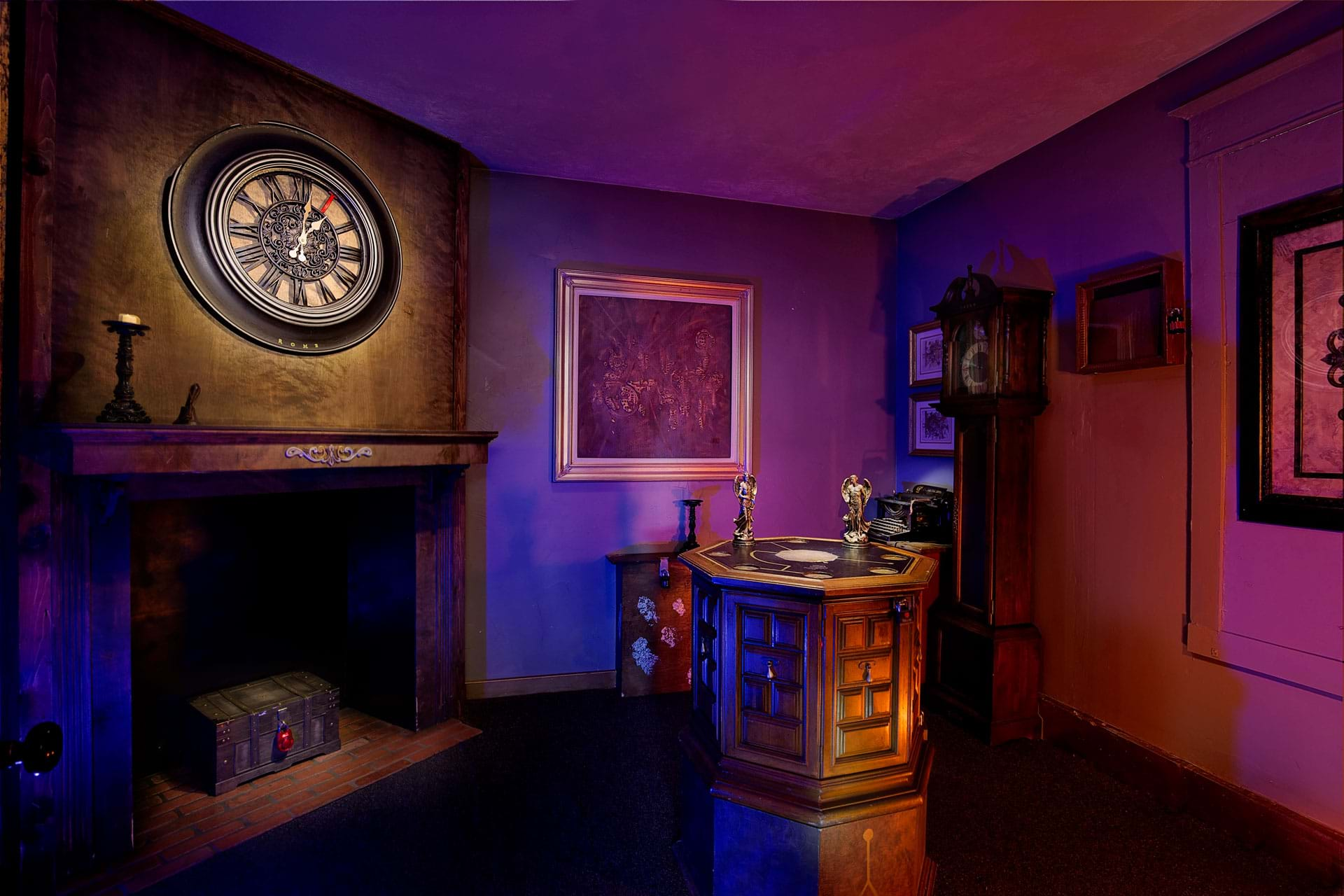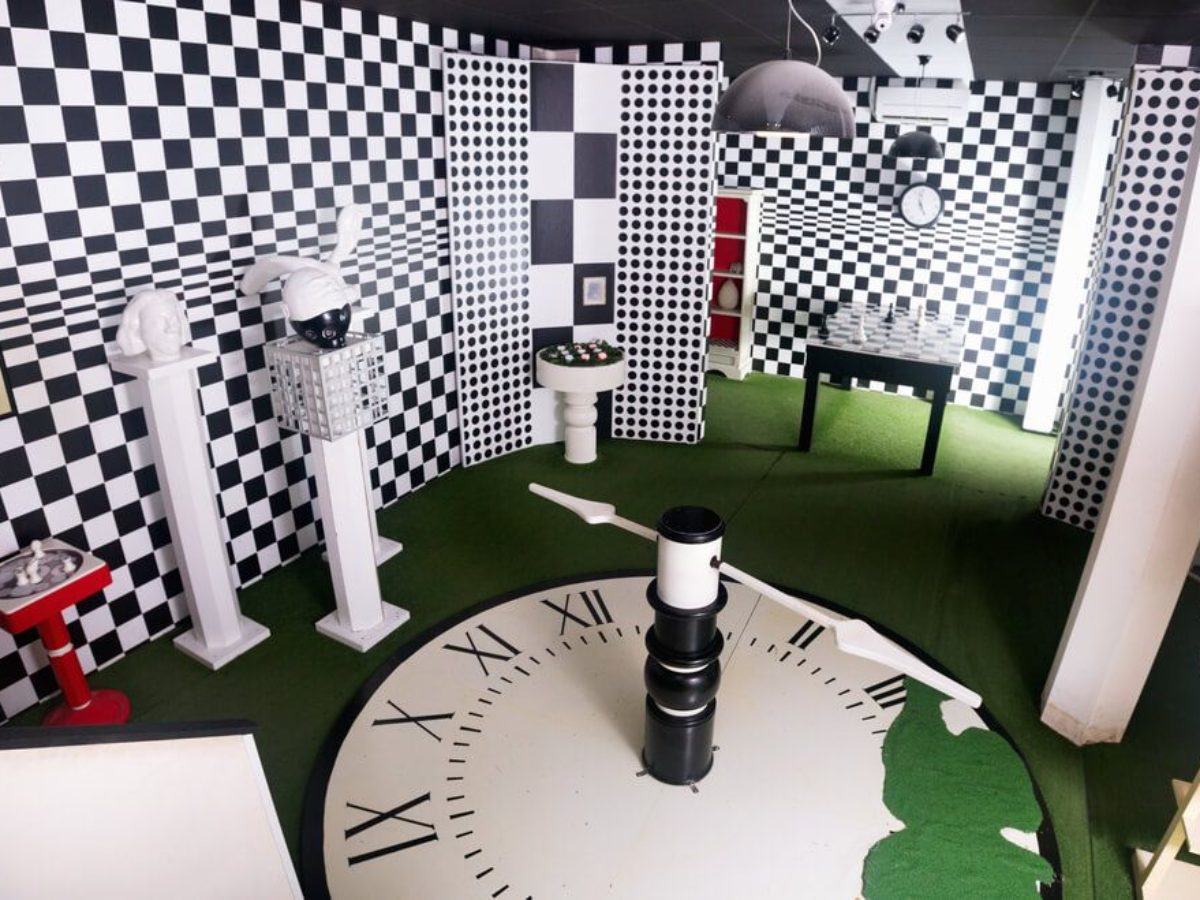Escape Room Minneapolis Mall of America-- Immersive and Enjoyable
Escape Room Minneapolis Mall of America-- Immersive and Enjoyable
Blog Article
Team Approaches: Just How to Team up Efficiently in a Retreat Space
Groups must proactively listen to each participant's insights, appoint functions that straighten with private strengths, and preserve regular check-ins to make sure focus and protect against redundancy. By fostering a setting that values cohesion and flexibility, teams can dramatically increase their performance and success rates.
Establish Clear Interaction

To assist in clear interaction, it is vital to mark a central point of call for information dissemination. Short, concentrated updates from each group participant can keep the group notified without frustrating them with information.

Designate Roles Purposefully
While clear communication establishes the structure for reliable teamwork, appointing roles strategically guarantees that each employee's strengths are made use of efficiently. In a getaway space situation, the time-sensitive and complex nature of difficulties requires a well-organized technique to task delegation. By identifying and leveraging private competencies, groups can maximize their problem-solving capabilities and boost overall performance.
First, evaluate the distinct abilities and attributes of each participant. A person with a keen eye for detail could succeed in finding surprise objects, while a logical thinker can be better suited to addressing challenges. It's equally essential to have a leader that can supervise progression, manage the timeline, and make crucial phone calls when needed. This duty frequently needs solid organizational and interpersonal abilities.
Second, guarantee that duties are adaptable and adaptable. As new challenges emerge, the team has to be able to pivot, reallocating tasks as called for. This adaptability aids keep momentum and protects against traffic jams that can take place as a result of inflexible duty tasks.
Eventually, a calculated strategy to role assignment not just maximizes the toughness of each staff member but additionally fosters a cohesive atmosphere, driving the team next page in the direction of a successful retreat.
Use Diverse Skills
Identifying and taking advantage of the diverse skills within your group can dramatically boost your performance in an escape room. Each staff member brings one-of-a-kind toughness to the table, and efficiently leveraging these capabilities can speed up analytic and boost general effectiveness. A team participant with strong logical abilities could succeed at analyzing complex codes or patterns, while an additional with keen empirical abilities may swiftly detect hidden clues that others could ignore.
Urge group members to voice their understandings and ideas promptly, guaranteeing that all possible remedies are thought about. Furthermore, appointing tasks that align with each participant's staminas can prevent traffic jams and make certain that development is continuous.
Furthermore, variety in skills commonly converts to diversity in thinking designs, which is invaluable in an escape room setting. Continued While some challenges may call for sensible reasoning and precision, others could gain from creative and association of ideas. By recognizing and leveraging this variety, groups can address a more comprehensive variety of obstacles more efficiently, consequently boosting their opportunities of an effective getaway.
Manage Time Successfully

Identify noticeable challenges and divide tasks based on group visite site members' strengths, making certain that no one is still. This method can aid keep the group concentrated and protect against time from sliding away undetected.
In addition, stay clear of tunnel vision. If a puzzle is taking as well long, turn employee or proceed to another difficulty, returning later with fresh viewpoints. Communication is critical-- maintain every person upgraded on addressed challenges and remaining tasks to stay clear of repetitive efforts.
Finally, make use of any kind of hints or ideas sparingly but strategically - best escape room. Recognizing when to ask for help can conserve valuable time. By adhering to these time monitoring principles, teams can significantly boost their opportunities of a successful and enjoyable getaway room experience
Debrief and Show
Representation is an important facet of group growth and enhancement in the context of escape spaces. When the challenge is finished, whether efficiently or not, it is critical for the team to engage in a structured debriefing session. This process enables employee to examine their efficiency, identify staminas, and determine locations for enhancement.
Start the debrief by reviewing what went well. Highlight certain instances of efficient communication, analytical, and partnership. Recognizing these favorable actions reinforces them and motivates their rep in future challenges.
Next, address the obstacles encountered. Review moments of confusion, miscommunication, or ineffective strategies. Urge an open and positive dialogue where group members can share their perspectives without anxiety of objection. This fosters a society of continual enhancement and learning.
Verdict
In verdict, successful collaboration in a retreat space is asserted upon clear interaction, calculated role jobs, the efficient application of varied skills, and skillful time administration. By producing a cohesive and flexible team atmosphere, the likelihood of efficiently addressing challenges and attaining the objective of escaping the room is significantly improved.
Report this page